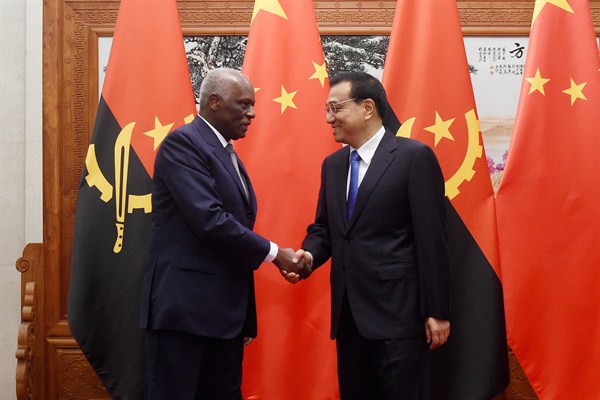In late March, Jane’s reported that Angola would soon receive the first batch of Russian-made Sukhoi Su-30 fighter jets as part of an ongoing military modernization program that kicked off four years ago. The modernization program aims to boost the number of troops in service and renew Angola’s military hardware in order to improve the operational capabilities of its armed forces. But when it was launched, resource-rich Angola was awash in oil revenue. The drop in global oil prices since last summer raises questions about the sustainability of Angola’s military modernization, as a growing economic crisis has already forced the government to cut back on spending.
Angola set about modernizing its military, one of the strongest and most advanced in Africa, when times were good. It boosted its military budget from $3.5 billion in 2010 to $6.8 billion last year, with some reports projecting that number to grow to $13 billion by 2019. The 39 percent spike in defense spending in 2013 alone, from $4.7 billion to $6.5 billion, was more than any other sub-Saharan country. Much of that money has gone to procurement deals abroad. In 2013, Angola and Russia’s arms export company Rosoboronexport signed a $1 billion agreement for an undisclosed number of Mi-17 helicopters and T-72B tanks, as well as small arms, artillery and the construction of an ammunition plant. Luanda also purchased six A-29 Super Tucano combat aircraft from Brazil, with which it also signed a Technical Memorandum of Understanding to develop the Angolan navy, including the acquisition of seven Brazilian Macae patrol ships.
The Angolan government didn’t stop there. Last November, Angolan Defense Minister Joao Lourenco visited Germany to sign a military training agreement with his German counterpart. That followed up on German Chancellor Angela Merkel’s 2011 proposal to sell six to eight patrol ships to Angola, each one costing between 10 million and 25 million euros. Other future procurement activities include additional border security equipment and unmanned aerial vehicles. Luanda has also sealed cooperation agreements for military training with Portugal, Cuba, Brazil, Russia and the United Kingdom.

